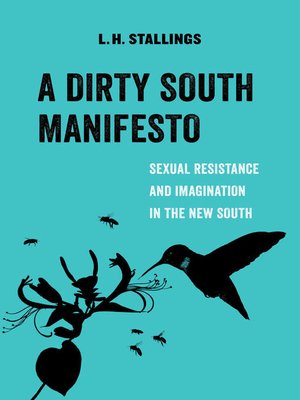A Dirty South Manifesto
ebook ∣ Sexual Resistance and Imagination in the New South · American Studies Now: Critical Histories of the Present
By L.H. Stallings

Sign up to save your library
With an OverDrive account, you can save your favorite libraries for at-a-glance information about availability. Find out more about OverDrive accounts.
Find this title in Libby, the library reading app by OverDrive.



Search for a digital library with this title
Title found at these libraries:
| Library Name | Distance |
|---|---|
| Loading... |
From the shutdown of Planned Parenthood clinics and rising rates of HIV to opposition to marriage equality and bathroom bills, the New South is the epicenter of the new sex wars. Antagonism toward reproductive freedom, partner rights, and transgender rights has revealed a new and unacknowledged era of southern reconstruction centered on gender and sexuality.
In A Dirty South Manifesto, L. H. Stallings celebrates the roots of radical sexual resistance in the New South—a movement that is antiracist, decolonial, and transnational. For people within economically disenfranchised segments of society, those in sexually marginalized communities, and the racially oppressed, the South has been a sexual dystopia. Throughout this book, Stallings delivers hard-hitting manifestos for the new sex wars. With her focus on contemporary Black southern life, Stallings offers an invitation to anyone who has ever imagined a way of living beyond white supremacist heteropatriarchy.
In A Dirty South Manifesto, L. H. Stallings celebrates the roots of radical sexual resistance in the New South—a movement that is antiracist, decolonial, and transnational. For people within economically disenfranchised segments of society, those in sexually marginalized communities, and the racially oppressed, the South has been a sexual dystopia. Throughout this book, Stallings delivers hard-hitting manifestos for the new sex wars. With her focus on contemporary Black southern life, Stallings offers an invitation to anyone who has ever imagined a way of living beyond white supremacist heteropatriarchy.







